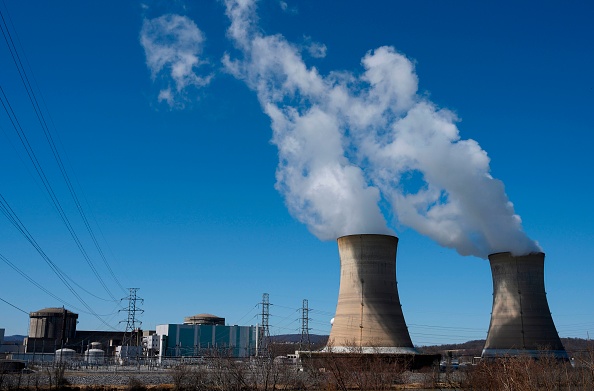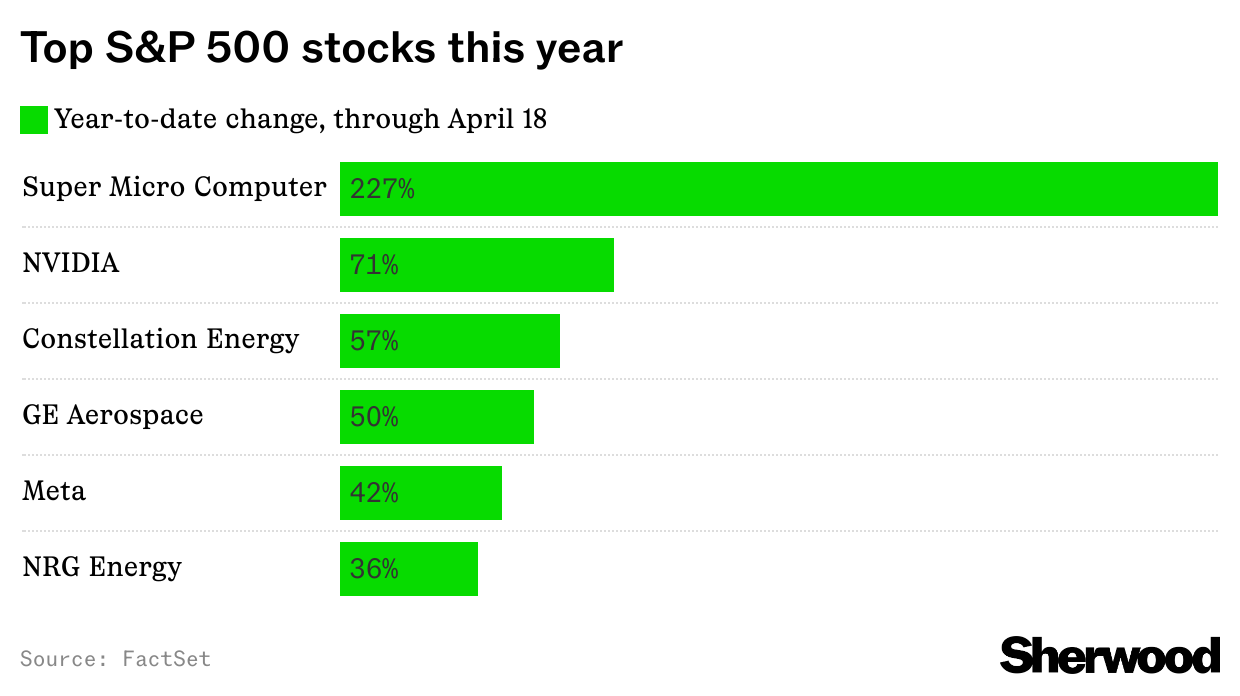Thursday Aug.15, 2019
Markets are predicting an economic recession
_IPO bankers going through mandatory WeWork culture training_
Hey Snackers,
We're telling you because we love you and we love rigatoni — The lifetime pasta pass for Olive Garden hits today. There are 50 of them, they cost $500, and they entitle your face/belly to unlimited pasta forever.
Cheese could help markets psychologically recover from one of the worst losses of the year. The Dow plummeted over 3%, but not because of stocks – it's a reaction to a signal in the bond market (more below).
IPO'ing
WeWork reveals its IPO paperwork — and things got weird
Let's start on page #3... of WeWork's S-1. That's the required tell-all document a company must file before an IPO, telling potential investors key details on the biz. And that's where things got awkward, talking about "the energy of We" (WeWork's actual holding company name). The 9-year-old, $47B huge-icorn with 604K work-stations worldwide wants to IPO soon and this unveil makes it feel like a sorority sect. Here's the surprising stuff:
- The history: “Our mission is to elevate the world’s consciousness” — that's how they begin telling it.
- The mantra: WeWork channeled its inner-yoga and made one for its IPO — "We dedicate this to the energy of we — greater than any of us, but inside each of us." We'll just let that sit.
- The pledge word: "Community." That term was dropped 150 times.
- The Co-Founder inequity: There are technically 3 (2 are married to each other), but CEO Adam Neumann will control at least 50% of the voting power. And his shares in the company are worth the most: $4.1B.
__There are 2 key numbers to work into your head...__Investors are curious about the $905M WeWork lost in just the first half of this year, 25% more than the same period last year (but it is on pace to double revenues). But WeWork wants you to focus on the 2 years time it takes individual locations to turn profitable, and WeWork has opened over 100 so far this year.
Forget co-working... WeWork is now "space-as-a-service." WeWork says it pioneered the term — The play on "software-as-a-service" is WeWork's attempt to appear like a tech company so investors will judge it like a tech company and be cool with the huge losses it's making now. It does though reflect all the things We is now doing outside of coworking:
- WeLive: "Community"-inspired hotel-like full-time living spaces that host 12K "Meetups" daily worldwide.
- WeGrow: Schools, because WeWork wants to grow kids' "souls" (their words).
- Ark: A global real estate platform to acquire real estate.
Econ
Bizarre Wall Street alarm goes off, signaling recession coming soon
Dun dun duuuuuun... The ringtone reserved for crisis situations was buzzing on Wall Street for a strange reason: The yield curve inverted. Translation: The interest rate the US government borrows at was higher for a 2-year loan than a 10-year one. Translation^2: The last 7 economic recessions were warned by this unusual solar eclipse-meets-blood-moon situation.
Everyone thinks the global economic party is going to be less fun... Which increases the chance that'll be the case. Central banks are lowering their country's interest rates on concerns that their economy could slow down. Here's why that's bad for markets:
- Germany and China are already sick: Those two heavyweights announced serious economic declines this week.
- If everyone thinks rates will keep falling, then they will: Expectations are important in finance. When the US Central Bank (aka "The Fed") announced the first interest rate cut in 10 years last month, it made the trend official.
- Banks are bumming: Citigroup fell 5% Wednesday. One of banks' core businesses is taking in money through your checking account and lending it out on the other side. Higher interest rates make that more profitable.
A lot's changed since December... Back then, the Fed was planning to increase interest rates in 2019 at least twice because the economy was doing so well. Since, the US vs. China trade war has spooked everyone.
- December 2018: 10-year lending rates were benchmarked by the US government's 2.911% borrowing rate.
- Today: That's down to 1.581%.
- PS: That's a huge difference, and today's rate is almost an all-time low.
Sip
The Starbucks of China plummets because it's actually a tech company
But first, coffee (earnings)... The "Starbucks of China" is already on track to pass Starbucks as the top espresso chain in tea-thirsty China this year. But just 3 months after its IPO in the US, Luckin Coffee shares dropped 17% after its first-ever earnings report. Before we get into why, get to know Luckin and its Bambi-ish logo:
- Gen Z lattés: Luckin was born mobile-first — In its three years of existence, its focus is small stores where you order ahead or order delivery with the app.
- Growth mode: Fast. Sales jumped 648% last quarter as it opened 593 new spots in just the last three months to hit 2,963 total (vs. Starbucks' 3,922 in China).
- It's a homebody: Luckin hasn't applied for a passport yet (but did just sign a deal for Middle East expansion). Its market value is 1/20th of globally-minded Starbucks.
How does Luckin take its coffee?... With other things now. The biggest update in Luckin's earnings was its moves outside the bean. It's now letting customers order food via app and it's dabbling in vending machines to save on real estate costs. Plus, to poetically "capture different consumption moments," it's now doing Luckin Tea.
Is Luckin' a tech company or a coffee company?... Yes. Both. But investors think it's behaving too Silicon Valley, so they dropped the stock. Luckin has aggressively cut prices of a cup of coffee to compete with Starbucks, which could be unsustainable. But that's kinda a tech move — no different than Uber or Lyft dishing out discount codes for rides to get you on their apps.
What else we’re Snackin’
- Sweet: The Museum of Ice Cream (actually, the new company behind it) gets valued at $200M for an obsession with "experiences"
- Playing: Alibaba's co-founder is spending his Chinese ecommerce bucks to buy the Brooklyn Nets, valuing the basketball team at a record $2.4B
- Retail-pocalypse: Macy's drops basically because it put too many clothes on sale over the spring
- Concocted: Coca-Cola is whipping up Cinnamon Coke in the US just in time for the holidays
- Situations: Overstock shares drop 22% after the CEO chats more about his involvement in the 2016 election investigation with Russian interference
- Goodwill: Amazon starts program to donate unsold products to charity, instead of destroying them
.png)

